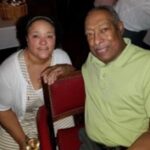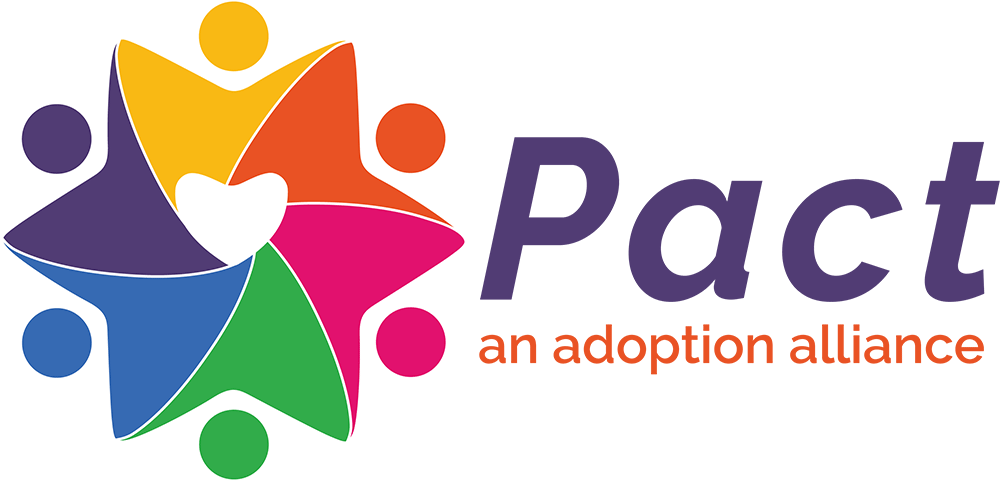By Kirstin Nelson

Kirsten & Burdell
In 2017, I decided to do both Ancestry and 23 & Me DNA testing. I had already connected with my birth mother over 30 years ago, and I was aware of, although not in contact with, my birth father, so I wasn’t looking for that information. But I was curious about my racial and ethnic background and my African ancestry and sifting through historical documents available online. I’m a librarian, so combing through old records is exciting! Also, as a biracial person, I wanted to find out what percentage of my ancestry is African. I’ve seen every episode of Finding Your Roots with Henry Louis Gates on PBS. Several episodes have explored why this information is sometimes complicated for Black people. One of my favorite clips from the show is Ava DuVernay, when she found out about her ancestry. You can view her results and reaction on Twitter.
Had I not already connected with birth family members, the decision may have been more difficult. All people, not just adoptees, must carefully weigh the pros and cons of DNA testing. People must be prepared to learn information that may be surprising or difficult. There may be concerns about medical information, and there are legitimate concerns about how others might use DNA data now and in the future.
I’ve had friends ask me about my experience, and with non-adoptees, I suggest they sit down and seriously consider if they are prepared to face possible unexpected information. For adoptees, there is even more to consider. Most adoptees should talk with a therapist or trusted friend about the pros and cons and plan for support they might need. If they plan to contact family members discovered on the websites, they must consider how best to do that and recognize that reactions may not be what they hope. But there are also good reasons to pursue testing. There are benefits to finding immediate or extended family and connecting with their culture and history. I found marriage and birth certificates, newspaper clippings of family events, yearbook photos, and a few other pictures. Finding these documents felt amazing.
I have a strong support network, and I’ve explored numerous adoption issues over years of therapy. I already had contact with a relative and am aware of the issues that led me to be placed for adoption. Adoptees who have no, or only non-identifying information, face a much more difficult decision. When I tested, I did it with my best friend, who was also adopted and had no information at all. Contact with her birth mother was unwelcome and very painful for her. She did ultimately connect with another relative and had a positive experience.
As for my nine-year-old daughter, I will not DNA test her at this time. We already have some information about our daughter’s first family, including race and ethnicity, so we plan to wait to let her decide for herself. That said, for some families whose children are eager for information or for whom racial identity information is unknown, a DNA test might make sense earlier. If there are questions related to medical issues, a doctor would likely recommend genetic testing, which is different from the over-the-counter kits available to the public. The American Association of Pediatrics issued guidelines on genetic testing of children and provides sound steps to guide decision making.
***
I submitted my DNA to Ancestry and 23 & Me to find out about my racial and ethnic makeup, and hopefully discover some historical records linked to my paternal biological family. My birth father is Black, and I’ve always wanted to know the history on his side. Although I don’t communicate with him, I do have contact with a half-sister. When I asked her about his family background, she revealed that he never knew his biological father, so she only had his maternal history.
Just days after my results appeared on 23 & Me, I received a message from someone with the last name of Chapman. After a flurry of emails with a cousin (KC), I discovered I’m a Chapman—as is my birth father. KC is the informal family genealogist and began sharing a wealth of family history and documents. He told me stories about both living and deceased relatives.
In less than a week, I had a fairly detailed story of the Chapman family back to 1852. I had census records and birth and marriage certificates. Many male family members served in both World Wars, and I had decades of military records documenting their service. I learned that the Chapmans mostly lived in the Charlottesville, Virginia, and the surrounding area, for generations.
Many family members were active in fighting for the end of Jim Crow laws and in the civil rights movement. Great Aunt Teenie (the family matriarch) pushed to integrate her neighborhood public library in middle school. The family story says that she showed up at the library after school every day, left when the police came to escort her out, and went right back the next day. Eventually, the library stopped calling the police and let her stay. Slowly others in the neighborhood began using the library as well.
About six months later, I was invited to Aunt Teenie’s 90th birthday celebration in Charlottesville. I wasn’t sure that I was ready to meet fifty or more relatives at one time, but ultimately, I knew I had to go. I was very nervous, but at least ten aunties ran to me with hugs and kisses as soon as I arrived. I remember one holding my face and saying, “You are a part of this family. You are a Chapman.” And I am. And I can honor and be a part of both my birth and adoptive families.
I spent about an hour talking to the family patriarch, Burdell. After that, he and I started writing each other letters, and he told me more family history. He asked me about my childhood and my family. I enjoyed corresponding with him via good old snail mail. We hoped to see each other again, but he passed in 2020.
My cousin and I have continued to communicate regularly. Since we live only about two hours apart, we’ve been able to grow a relationship. Our kids are close in age and my daughter loves her Chapman cousins. We do birthday parties, cookouts and joint family vacations. Each time we meet, I learn more about my Chapman family roots. I’m hoping to attend other Chapman family events post-COVID. For me, DNA testing has been a very positive experience. It’s made me feel more grounded and connected to my roots, my heritage, and my family.
Kirstin Nelson is a transracial adoptee and an adoptive parent. She grew up in racial isolation in rural Nebraska and has spent her adult years forming her cultural and racial identity. She has been in reunion with her first mother for over 20 years. Kirstin is a law librarian for the federal government and adjunct law professor.
